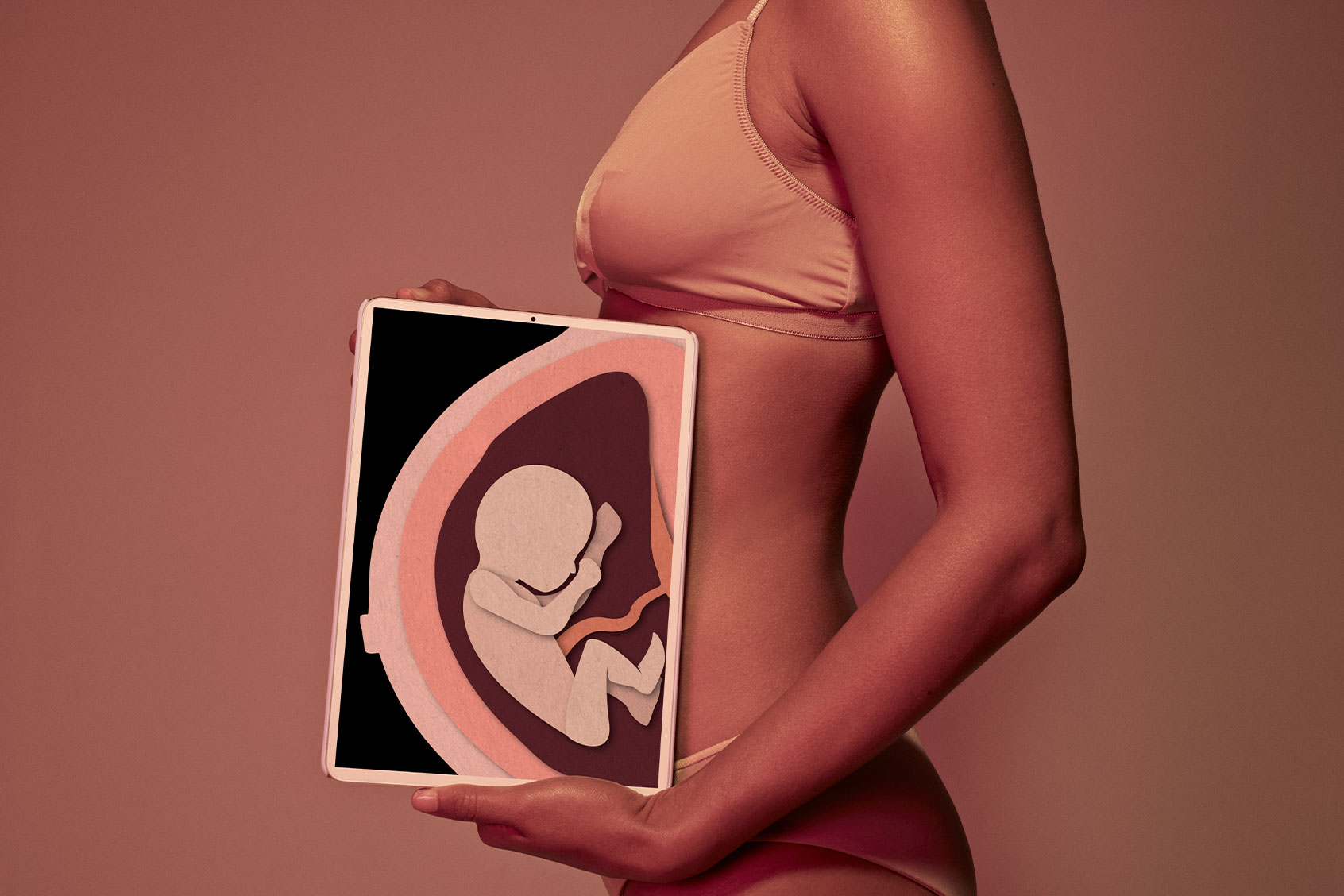It has long perplexed scientists how during pregnancy, mothers don’t reject the fetus. When a foreign organism enters the body, the immune system’s standard response is to send fighter cells to attack the invader. In some ways, a fetus growing inside the uterus is also a foreign being, sapping the mother’s energy and nutrients. Yet evolutionarily, our entire species depends on something breaking that cycle to create a symbiotic relationship between mother and child.
“Pregnancy is really an immunological marvel.”
A new study published today in the journal Science deepens our understanding of the maternal-fetal bond and chips away at this question, building on decades of research designed to uncover these mysteries. Although the research was conducted in mice, the findings could inform treatments that reduce maternal and infant mortality, preterm birth and other pregnancy complications in humans, said study author Dr. Sing Sing Way, Ph.D., an infectious disease pediatrician at Cincinnati Children’s.
“Pregnancy is really an immunological marvel because it’s the most physiologically relevant context where you have genetically and antigenetically different cells and tissues in close approximation with each other that live not only without fighting but in harmony, promoting the growth and development of the fetus,” Way told Salon in a phone interview. “We actually don’t understand that very well, and we’re trying to probe it with these types of experiments that we conducted.”
In 2012, Way and his team published a study in which they found pregnant people produce specialized immune cells called tolerogenic cells that are partly responsible for preventing the immune system from attacking the fetus. These immune cells are smart enough to recognize whether subsequent siblings come from the same biological father, using a “memory” they have of prior pregnancies.
These immune cells are smart enough to recognize whether subsequent siblings come from the same biological father.
A few years later, the same team discovered that it’s not only a mother’s cells remembering their offspring but that an offspring’s cells can also remember their mother. In rodent models, the team found that extremely rare cells travel during pregnancy from mother to fetus and vice versa. These cells persist in both individuals long after birth, which helps explain why, if someone needs an organ transplant, better outcomes occur when the organ comes from the mother rather than the father. It seems this is because people’s bodies hold on to these cells that allow them to recognize a mother’s tissue more easily.
Want more health and science stories in your inbox? Subscribe to Salon’s weekly newsletter Lab Notes.
“We found that how that tolerance works in the babies to their mothers is from these things called microchimeric cells, which are basically extremely rare cells — about one in a million — that travel during pregnancy from mother to baby and from baby to mother, and persist in both individuals after birth in what seems like forever,” Way said. “That’s how babies are ‘remembering’ their mothers is through those cells, or even children or adult children are remembering their mothers, is through that those cells.”
The study published today by the same research group suggests that the fetal-mother connection runs even deeper than once thought. The researchers found that only one set of these microchimeric cells can be held at a time, meaning that when a mother has subsequent children, a new set of cells specific to that child replaces the first group of cells. Fascinatingly, when daughters go on to become pregnant, they also lose these original cells connecting them with their mothers to make room for ones that connect them to their own children.
When daughters go on to become pregnant, they also lose these original cells connecting them with their mothers to make room for ones that connect them to their own children.
But while a daughter would “forget” this biological connection upon becoming pregnant, the mother retains a “memory” of the child regardless of whether she has subsequent children. That’s because the mother retains a set of tolerogenic cells that maintain this mother-child connection.
“Each time there’s a pregnancy, there’s a displacement or a loss of the prior microchimeric cells and that’s why daughters forget their mothers when they have new pregnancy imprinted memories,” Way said. “But what’s interesting is that mothers never forget any of their children because the way that they remember is not exclusively due to the fetal microchimeric cells. They have another failsafe way of remembering that doesn’t require those cells.”
Scientists are still uncovering all of the ways in which a mother’s immune system reacts in pregnancy. Mothers can also produce “super antibodies,” for example, that protect the fetus from viruses. Leveraging how the immune system changes in pregnancy could provide insights into how to treat other immunological conditions, Way said.
We need your help to stay independent
One in 10 mothers will experience preterm births, but there are not many treatment options when a baby is born early. Similarly, understanding this mother-child connection, something that’s still largely a black box, could help us reduce pregnancy complications.
“We need to understand how we reproduce and how we survive as a species,” Way said. “If we could understand how it worked in animals, then, despite the differences between humans and animals, we can apply that knowledge from animals to improving human pregnancy outcomes.”

